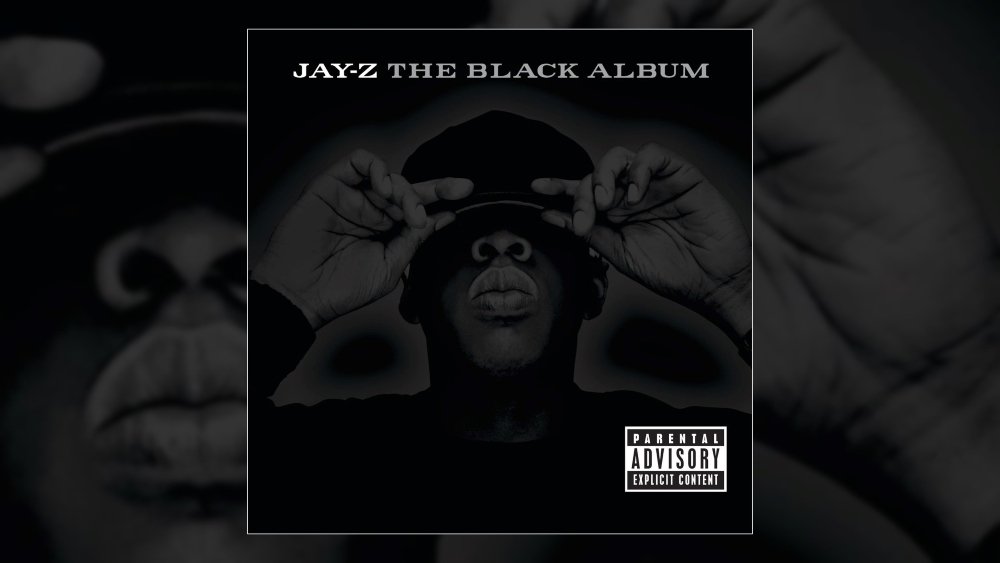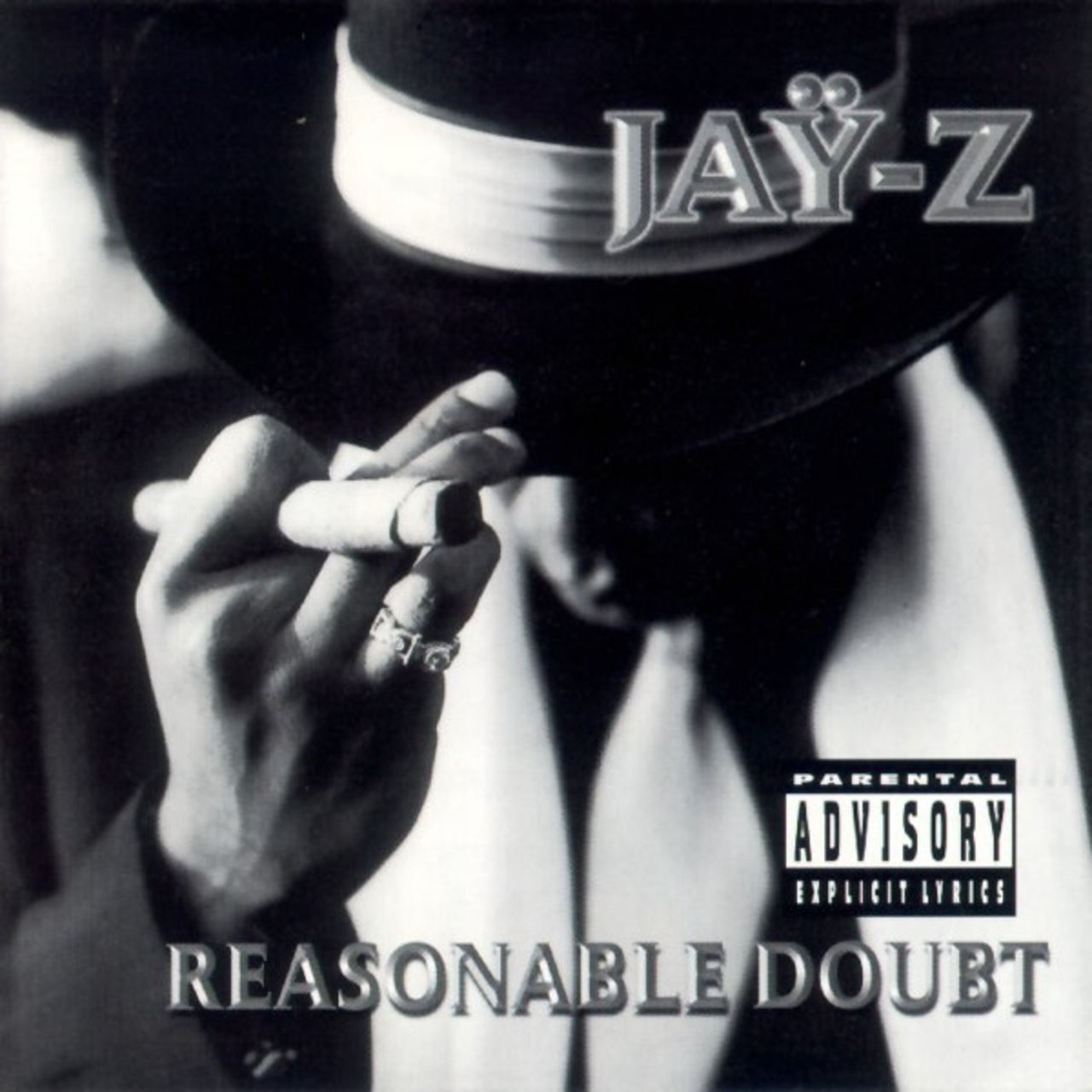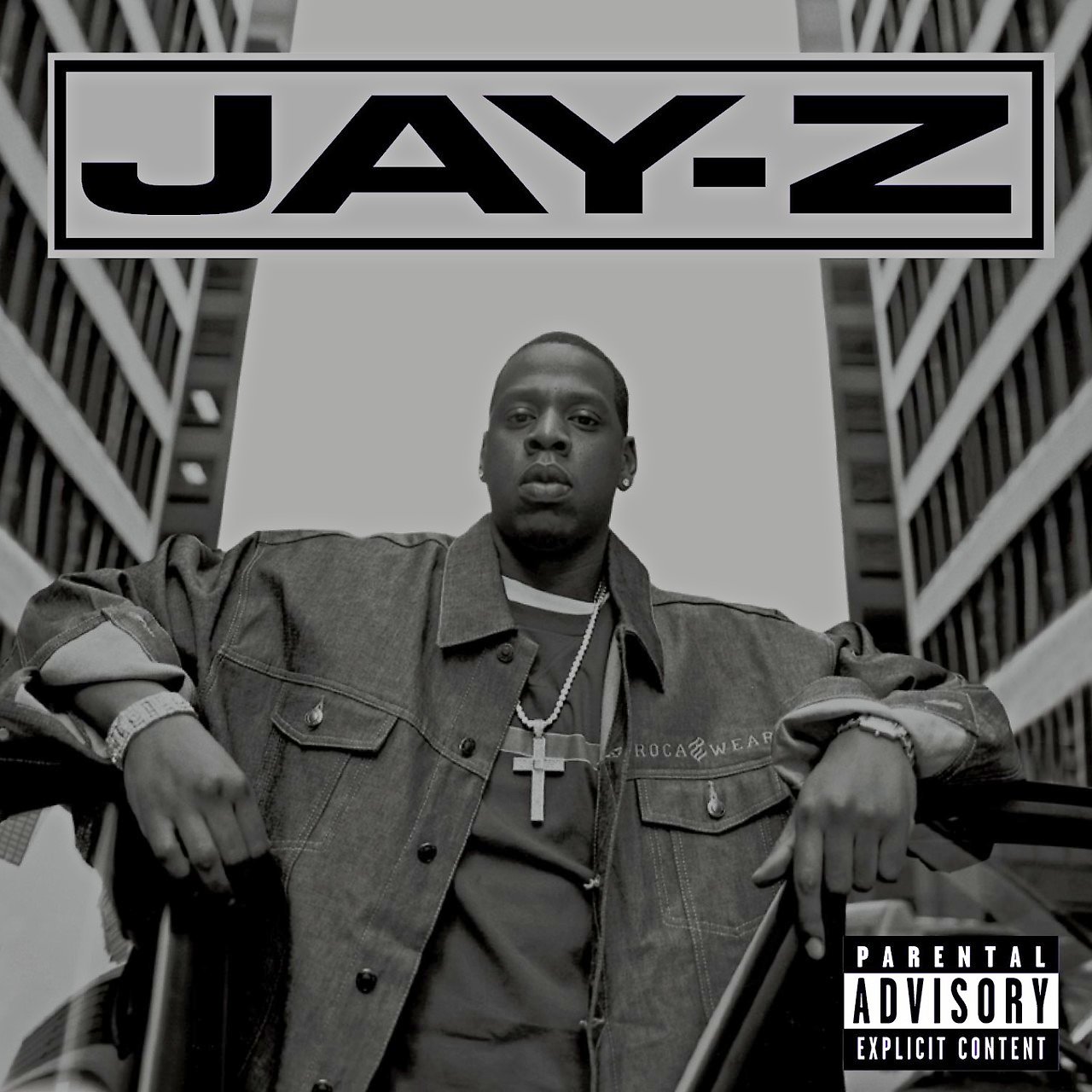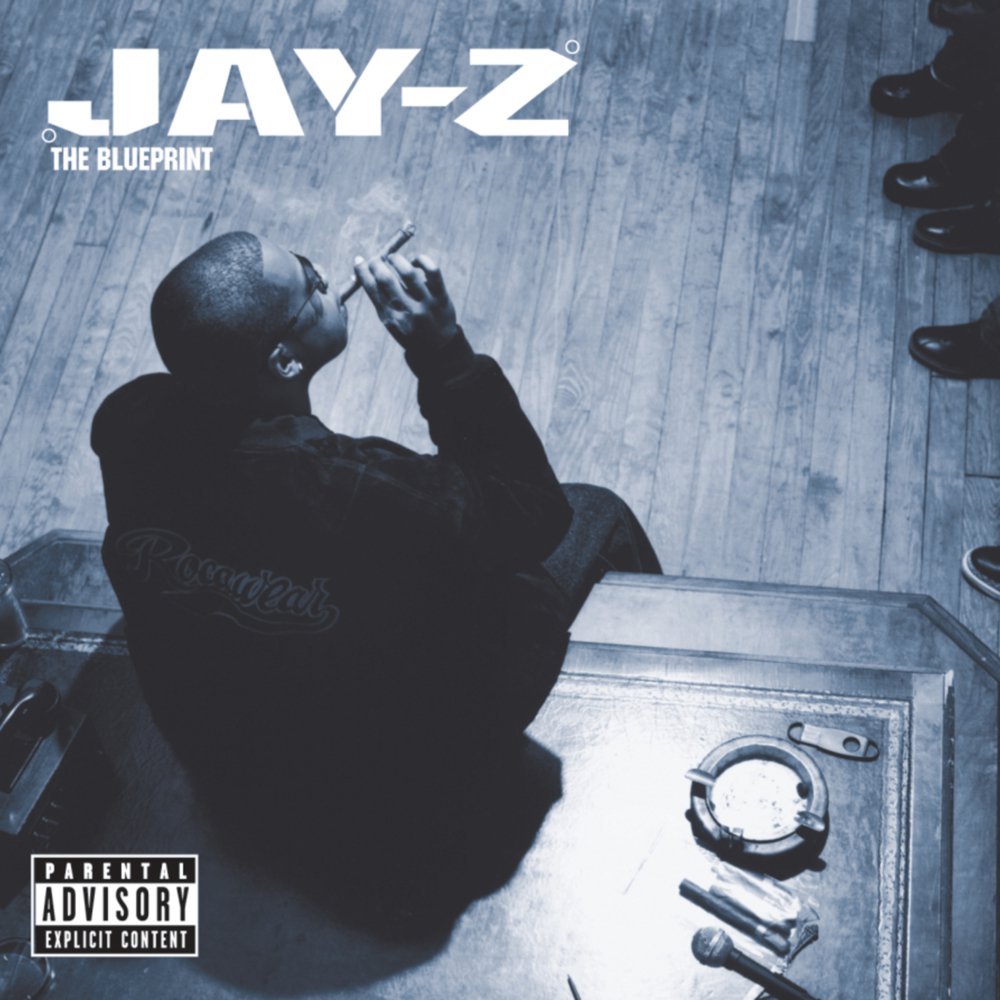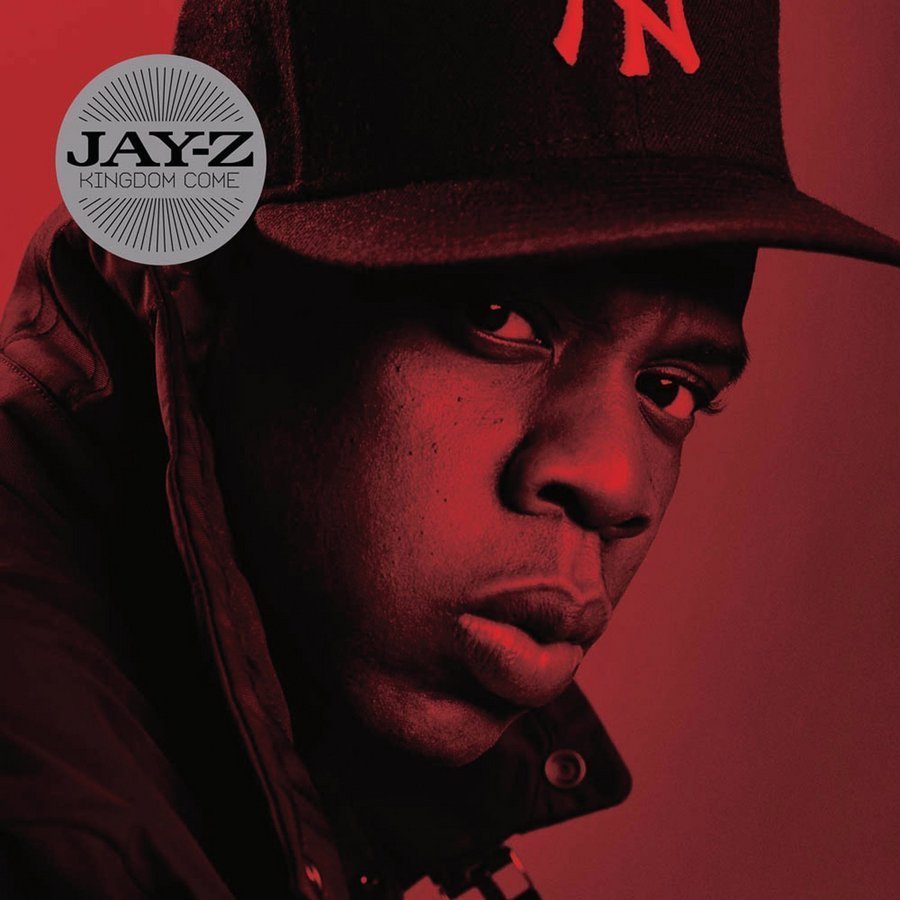Happy 20th Anniversary to Jay-Z’s eighth studio album The Black Album, originally released November 14, 2003.
Few rappers were so obsessed with their own retirement as Shawn “Jay-Z” Carter. The emcee, who’s become an indisputable household name inside the world of pop culture, had been openly pondering his retirement since the release of his very first album Reasonable Doubt (1996). The intro of Vol. 2...Hard Knock Life (1998) is about Jay-Z deciding to step aside and let his protégé Memphis Bleek take his place. It wasn’t until 2003 when he finally formally announced that he was retiring from recording albums, and The Black Album, released 20 years ago, was going to be his swan song.
Jay-Z likely didn’t step away earlier because he was just too damn successful to do so. By 2003, he’d sold tens of millions of albums. He had crafted some of the most recognizable and beloved hip-hop tracks of the ’90s and ’00s. He was in the beginning stages of his relationship with Beyoncé Knowles, the “hottest chick in the game.”
However, for all his triumphs, some inklings of fatigue were apparent. In 2002, he had released the Blueprint 2 double-album, a bloated, mixed bag of tracks that showcased his best and worst habits. So, crafting a project that allowed him to go out on top seemed like a sure-fire win. The Black Album was to be his final artistic statement and the capper to a legendary career.
While not without its flaws, the finished product is still one of the better releases in Jay-Z’s career, featuring some of his stronger lyrical work. Jay-Z spends much of the album exploring the beginning of his career as he was supposedly reaching its end. The album’s production is where some inconsistency lies: overall it’s strong, but there are still a few notable misfires. Commercially, it’s Jigga’s most successful album of the ‘00s, having gone three times Platinum and having sold more than 3.5 million copies.
Jay-Z went through several iterations of The Black Album as a concept before recording and releasing the final project. He originally conceived it a handful of years prior, during the late ‘90s, as a retirement album to be produced entirely by DJ Premier. This would been an exciting prospect, as Premier had crafted some of the best tracks during the early portion of Jay’s solo career. According to a Genius.com interview with Premier, Jay had told him to block out a few weeks on his calendar so that the two could hole up in the studio and record the album, before relenting a few weeks later. Jay put the project on hold, opting to record The Dynasty: Roc La Familia (2000) instead.
The second iteration of The Black Album was then intended to be a 12-track swan song featuring 12 different producers, most of whom Jay had worked with throughout his career. Promotional ads were released setting a Black Friday release date (November 28, in 2003) and promising entries from Preemo, Ski (a.k.a. Ski Beatz), Dr. Dre, Swizz Beats, Track Masters, The Neptunes, Timbaland, Just Blaze, Kanye West, Rick Rubin, and DJ Quik.
Watch the Official Videos:
The Black Album became a 14-track, 10-producer endeavor that was released on November 14th. While there were no beats as advertised produced by the likes of Dre, Preemo, and Ski, the album featured tracks by first-time collaborators 9th Wonder, The Buchanans, and Aqua & Joe “3H” Weinberger (mostly known for his work as an A&R executive). The project also features multiple beats by then still up-and-comers West and Blaze, plus two tracks by the still white hot Neptunes.
Jay-Z gave a “farewell” performance at Madison Square Garden to go along with the release of The Black Album. The November 25th concert was filmed and transformed into the Fade To Black concert film. Along with live performances featuring the veritable cavalcade of guests, the film also showed the album’s in-studio recording process.
The project begins with the autobiographical “December 4th,” featuring Jay-Z’s reflections on the journey that brought him to this point. The song centers on birth and rebirth, first dealing with being brought into the world and his upbringing in what became a broken home, to transitioning to his hustling and drug-dealing days, to finally making his decision to leave the illegal life behind and become a rapper. The Just Blaze “chipmunk-soul” production, built around a soaring string-based sample of the Chi-Lites’ “That’s How Long” gives the song added grandeur, while the narration by his mother Gloria Carter adds some insight into Jay-Z’s childhood.
“What More Can I Say?” depicts Jay-Z at peace with retirement. Having lived the life of a hustler and becoming one of the best and most successful emcees to ever pick up a microphone, he states that he’s ready for his next chapter. Of course, he makes it clear that he’s always ready to get down for his crown, rapping “I’m not the one to score points off, in fact / I got a joint that’ll knock your points off / Young Hova the God, n***a, blast for me / I’m at the Trump International, ask for me / I ain’t never scared, I’m everywhere, you ain’t never there / And n***a, why would I ever care?”
“Dirt Off Your Shoulder” is the album’s strongest “pop” track. An ode to shaking off your haters, the song is among Jay’s best collaborations with Timbaland. Timbaland has shined the brightest as an R&B producer, but he did his best hip-hop related work with Jay-Z. Jay swaggers through the shuffling, unorthodox , yet still very much Timbaland-sounding track, proclaiming that he’s still “the best rapper alive, n***a, ask ‘bout me.”
The two entries produced by The Neptunes are mixed in terms of quality. The team of Pharrell Williams and Chad Hugo had made dope music with Jay-Z in the past, but “Change Clothes,” the album’s first single, isn’t their best work. The song ranks near the bottom of the group’s work with Jay-Z, a bland and boring attempt at broad pop appeal. Though Jay-Z proclaims the importance of maturing as a person throughout the song, it’s just outright dull.
“Allure,” Jay-Z’s second team-up with the production team, is much stronger. For one, the beat is much more distinctive, built around a melodious keyboard riff, punctuated by gunshots. Jay’s rhymes are some of his best on the album, as he describes being inextricably attracted to living the life of hustler. He acknowledges that while there are few happy endings associated with dealing drugs, he somehow can’t escape its inevitable pull. “I’m just a moth addicted to the floss,” he raps. “The doors lift from the floor and the tops come off / By any means necessary, whatever the cost / Even if it means lives is lost.”
Enjoying this article? Click/tap on the album covers to explore more about Jay-Z:
In 2003, Kanye West was producing well-known gems for the Roc-A-Fella camp and working on launching his solo career. Both of his collaborations with Jay on The Black Album are winners. “Encore” is a spirited lyrical sprint by Jay, rapping on the blaring horns from John Holt’s cover of “I Will.” Jay has said that he regretted the song wasn’t the album’s first single. On the reggae/dancehall-influenced “Lucifer,” Jay-Z wrestles for control of his soul, struggling to find a way to escape the “dark forces” in his life and searching to find a way to “get my soul right.”
The album’s best track is Just Blaze’s second contribution, the all-too-brief “Public Service Announcement,” where Jay-Z famously reintroduces himself to the world. According to Jay, the song almost didn’t make the album, as he was preparing it to be shipped off to be mastered when he heard Just Blaze’s beat, and decided that he had to include it on the project. Originally envisioned as a “commercial” of sorts in the midst of the album, it became one of Jigga’s most beloved tracks.
Jay delivers two powerful verses over a towering organ sample from “Seed of Love” by Little Boy Blues. He dubs himself “Ché Guevara with bling on” and chides his naysayers while rapping, “You can blame Shawn, but I ain’t invent the game / I just rolled the dice, trying to get some change / And I’d do it twice, ain’t no sense in me / Lying as if I am a different man / And I could blame my environment but / There ain’t no reason why I be buying expensive chains.”
“Threat” features Jay-Z unleashing some premium braggadocio, and is the type of lyrical exercise that he hadn’t engaged in since the first Blueprint (2001). Producer 9th Wonder builds the song around a loop of R. Kelly’s “A Woman’s Threat,” which the North Carolina-based producer sampled at the request of Jay. The song also features some humorous trash-talking in the intro and outro comedian Cedric the Entertainer, doing his best Dave Chappelle impression. Jay-Z uses an effortless flow to remind his foes who they’re dealing with. “I put the boy in the box like David Blaine,” he raps. “Let the audience watch, it ain’t a thang / Y’all wish I was fronting, I George Bush the button / For the oil in your car, lift up your hood, n***a run it / Then lift up your whole hood like you got oil under it / Your boy got the goods, y’all don’t want nothing of it.”
Arguably the most interesting track on The Black Album is “99 Problems,” its third single, produced by the legendary Rick Rubin. Jay-Z spends each one of his verses outlining a potential problem, or “bitch,” from critics to racist police officers to run-of-the-mill trash talkers. The chorus was inspired by an Ice-T song of the same name that he released back in 1993. It’s the first hip-hop track Rubin produced in about 15 years and sounds like an artifact of the mid to late ‘80s. Rubin mixes frequently used breaks of the era, including Billy Squier’s “Big Beat” to Wilson Pickett’s “Engine No. 9” to create a track that would have felt at home on the Beastie Boys’ 1986 debut Licensed To Ill.
“Moment of Clarity” features a strong lyrical performance, but it’s hampered by a plodding and soulless beat from Eminem. Jay’s verbal talents still shine, as he re-examines his life and legacy and how they’ve been shaped by the decisions that he’s made. Using some potent self-reflection, Jigga looks back on his career and acknowledges the compromises that he made and his decision to “dumb down for my audience to double my dollars.” He famously muses that “If skills sold, truth be told, I’d probably be lyrically Talib Kweli / Truthfully I wanna rhyme like Common Sense / But I did 5 mill – I ain’t been rhyming like Common since.”
The album closes with “My First Song,” inspired by the philosophy of Biggie Smalls, who, via an excerpt from a mid ‘90s MTV interview, explains in the track’s intro the importance of treating every song like it’s the first that you’ve recorded. Jay-Z uses an intricate start-and-stop conversational flow over a stuttering guitar sample from Los Angeles Negros’ “Tu y Tu Mirar, Yo y Mi Cancion.” Jay appropriately stresses the importance of staying hungry and focused throughout his rapping career, taking nothing for granted.
After The Black Album’s success, Jay-Z spent the next few years being the least-retired “retired” rapper ever. He did guest verses for fKanye West and Memphis Bleek. He put out a pair of collaboration projects. The first was Unfinished Business, Jay-Z’s second partnership with R. Kelly, which was released less than a year after The Black Album. A month after that, Def Jam released Collision Course, a “mash-up” EP with Jay performing lyrics from The Black Album over instrumentals from rap-influenced rock group Linkin Park. In the meantime, Jay-Z assumed the role of President of Def Jam Records, leading to the dissolution of Roc-A-Fella Records and a falling out between Jay and longtime business partners Damon “Dame” Dash and Kareem Biggs.
The sheer number of Black Album remix projects added to Jay’s seeming ubiquity during this period. As he had for years prior, Jay released a cappelas from the album, allowing any producer with the desire to do so to lay the vocals over their own tracks and release their own projects. Literally dozens did. Some of the best of these were created by independent hip-hop producers like Kev Brown, Kardinal Official & Solitair, Kno, and Paul Nice. It also led to the best-known remix/mash-up album of all time. The Grey Album, created by producer Danger Mouse, which mixed Jay-Z’s Black Album vocals with samples taken exclusively from the Beatles’ White Album (1968). The release earned worldwide acclaim—though it was quickly removed from shelves due to protestations from The Beatles’ lawyers—and was apparently the inspiration for the aforementioned Collision Course.
Eventually Jay-Z gave up all pretense of retirement and did indeed came back “like Jordan wearing the 4-5,” releasing Kingdom Come a little over three full years after The Black Album. Including Kingdom Come (2006), Jay has released seven albums since his first retirement: some solo albums, some collaborations with his frequent partner Kanye West (2011’s Watch the Throne) and his wife, Beyoncé (2018’s Everything Is Love).
These days, he’s essentially retired by default. He toured with Beyoncé to support Everything Is Love, but hasn’t released an album since. He’s also good for about two or three guest verses a year. In 2021, he was inducted into the Rock & Roll Hall of Fame. As an extremely wealthy father of three, he’s moved on to being a hip-hop elder statesman and a mogul. He has his hands in many different ambitious endeavors, from teaming with the NFL in the name of entertainment and social justice, to partnering with Caesar’s Entertainment to open a casino in Time’s Square.
It’s interesting to contemplate how things would have turned out if Jay really had walked away from recording albums after The Black Album. His legacy was already secure 20 years ago. His releases since his “retirement” have been a mixed bag, including both some of the best and worst material that he has ever recorded. But whether or not The Black Album really was his final artistic statement to his fans and critics, it’s a convincing portrayal of an emcee who is satisfied that he has accomplished all he’s needed to accomplish. And in these moments of clarity, he’s comfortable that he’s given the best that he can offer. Few artists can say as much.
LISTEN:

